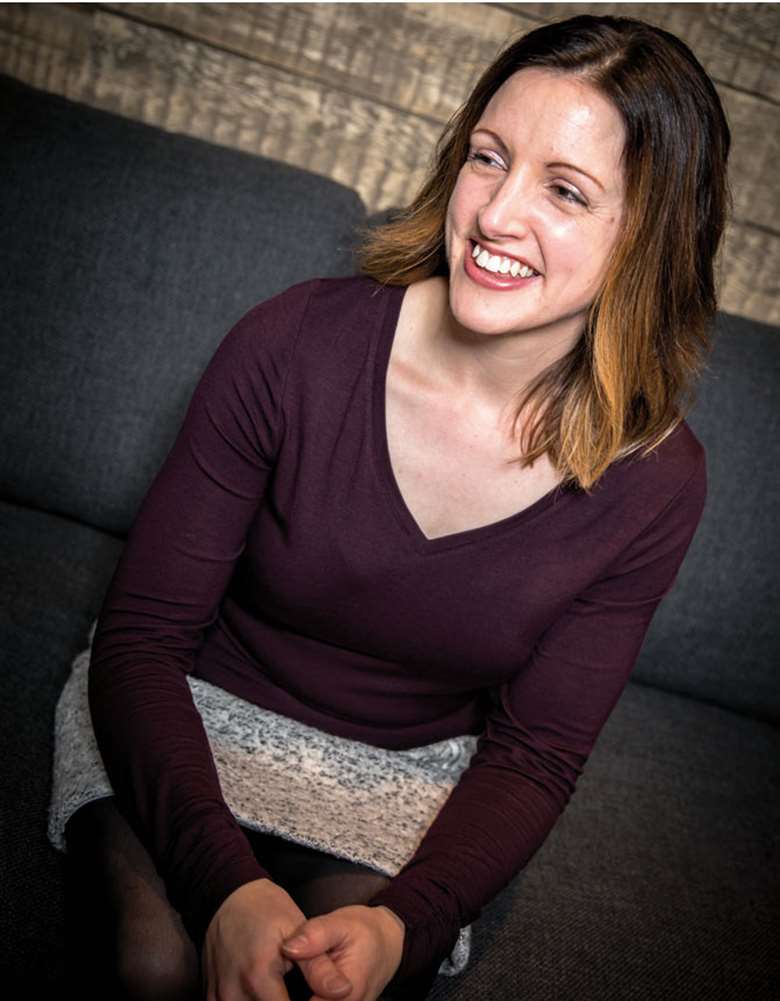Q&A: Rachel Shapey
Harriet Clifford
Tuesday, June 1, 2021
Rachel Shapey is well known in the music education world as the director of I Can Compose, a website of composition resources aimed at GCSE and A Level students. Her book on teaching composition in the classroom is out at the end of May, and Harriet Clifford catches up with her

HC: Congratulations on your new book! Can you tell me about it?
RS: What I've done with the book is bring together lots of ideas that teachers can use practically in the classroom. They're easy to organise, they don't require lots of fancy equipment or a recording studio or anything like that, and the idea is that teachers can use them, adapt them, and develop them. It was quite hard writing the book for such a wide variety of teachers – it's for new teachers, teacher trainees, and people who have been teaching for a long time – but I hope there's something in there that everybody will find useful.
HC: Your resources are mainly for secondary school students, but do you think composition should start from day one?
RS: Yes, I think it's all integrated – the listening, the performing, the analysing. In fact, in the book I've talked about something I call the ‘integrated approach’ where we're not just taking everything as a standalone skill – it's like joined up thinking where one thing leads to another.
HC: How accessible do you think composition is at GCSE and A Level?
RS: During lockdown, a lot of teachers have discovered various platforms that have allowed students to still compose from home. These are cloud-based apps that students can use on their phones, and most are free up to a point. I think that has really transformed student experience because before, a lot of students were using Sibelius in the classroom. If they wanted to work on it outside of class, they either had to purchase Sibelius themselves, or they had to go into the music department at lunchtime or after school, which isn't always possible.
HC: Can students of all abilities compose and benefit from this element of music education?
RS: Definitely. I think anyone can compose. With performing, some students already have instrumental lessons, so there's already that element of having to differentiate heavily. With composition, students often come in at a similar standard, and they can surprise themselves with what they come up with. They think they can't compose – perhaps they were told that before – but actually everyone can come up with something, and that's the beauty of composing.
HC: In your experience, what can students gain from composition?
RS: I think it can really help with increasing students’ confidence, but with the right support in place. I've taken over classes before and the confidence levels and the morale have been quite low, so I've felt that I've had quite a job on my hands to get something out of these students and to help them realise that they can do this.
I took over a class where they were told they had to write an ‘African’ piece and a piece in the style of Mozart. I think that's why the morale was quite low because it just didn't suit everybody. We looked at where we might be able to change that, and then in the end all the students were composing in different styles, which they enjoyed far more. There was one girl who was a fantastic songwriter – she played her song to me and I said, ‘We need to submit that!’ She didn't realise she could submit a song for her GCSE. She went on to land a record deal and release EP.
HC: So it's important that students have the option to compose in different styles?
RS: I think this is one of the challenges for teachers. Practically, it's much easier to manage if you've got everybody writing in the same style. However, composing is such a personal process! So while it's important to encourage students to write a variety of pieces, allowing some free choice is also hugely beneficial.
As I've become more confident, I've asked students to choose one of three options. That's perhaps a bit easier to manage – you have to be organised and I think it's harder as a teacher if you're not confident in a particular style. This was the starting point for my website as I offer courses in different styles – the teacher can have everybody working in different styles at the same time, and be a kind of ‘musical facilitator’.
HC: What would be your takeaway piece of advice for teachers?
RS: I think I'd say model the composing process. Be a musician first and let students see you composing so they can see how it's done. It doesn't have to be amazing but let them see you as a composer.
How to Teach Composition in the Secondary Classroom: 50 inspiring ideas is published by Collins Music on 28 May 2021
Read our review here (MT May).

